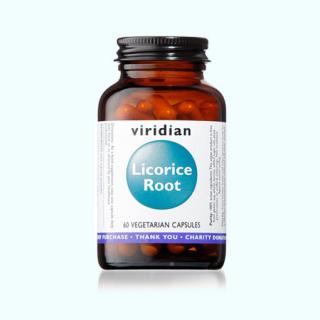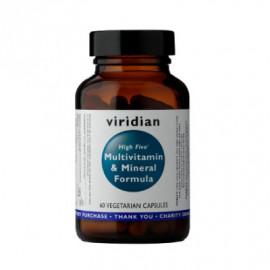
Viridian
Licorice Root Extract 250mg Veg Caps - 60
- Standardised Licorice root extract in a base of alfalfa, spirulina and bilberry.
payments of R88.50 Learn more


Shop Online
and fill your cart
Choose Payflex at checkout
Get approved and
pay 25% today
with your debit
or credit card
Pay the remainder
over 6-weeks.
No interest.
No fees.
Vegan, Kosher
Standardised Licorice root extract in a base of alfalfa, spirulina and bilberry.
Licorice is one of the most extensively used and scientifically investigated herbal medicines.
The medicinal use of licorice in both eastern and western cultures dates back several thousand years.
Used primarily as a demulcent, expectorant, antitussive and mild laxative. Licorice is one of the most popular components of Chinese medicine. Its traditional uses include the treatment of peptic ulcers, asthma, pharyngitis, malaria, abdominal pain, insomnia and infections.
Potential applications: Colds and viruses – Licorice has long been used to treat common cold symptoms and is effective against a number of viruses particularly cold sores and genital herpes.
Pre-menstrual syndrome – Symptoms of pre-menstrual tension, depression, cravings, weight gain, breast tenderness has been attributed to an increase in the oestrogen to progesterone ratio. Both glycyrrhizin and glycyrhetinic acid possess anti-oestrogenic properties and suppress the breakdown of progesterone.
Licorice in combination with glycine and cysteine have demonstrated impressive results in treating chronic hepatitis B, one of the most difficult of infections for the body to deal with.
Licorice would appear a suitable remedy in dealing with candida particularly in cases where there is a chronic fatigue syndrome (CFS) ‘picture’. The anti-microbial effects combined to the adrenal supportive properties could make this appropriate in certain cases.
Known contraindications: The chronic ingestion of licorice in large doses leads to a well-documented ‘aldosterone-like’ syndrome, presenting symptoms of high blood pressure, loss of sodium and potassium and water retention.
Ingestion of licorice, (more than 3 grams per day for more than 6 weeks) or gycyrrhizin (more than 100mgs per day) may cause sodium and water retention, hypertension, hypokaemia and suppression of the renninaldosterone system. Monitoring of blood pressure and electrolytes and increasing dietary potassium intake are suggested.
Adverse effects are rarely observed at levels below 400mg per day. Eating high potassium, low sodium diet normally prevents the side effects of glycyrrhizin.
Not recommended in hypertensive patients unless under physician supervision.
Interactions: Licorice should probably not be used by patients who are currently using digitalis preparations.
Avoid using licorice alongside Furosemide / Thiazide diuretics.
Standardised Licorice (Glycyrrhiza Glabra) root extract (20% glycrrhetc acid) in a base of alfalfa, spirulina and bilberry250mg










